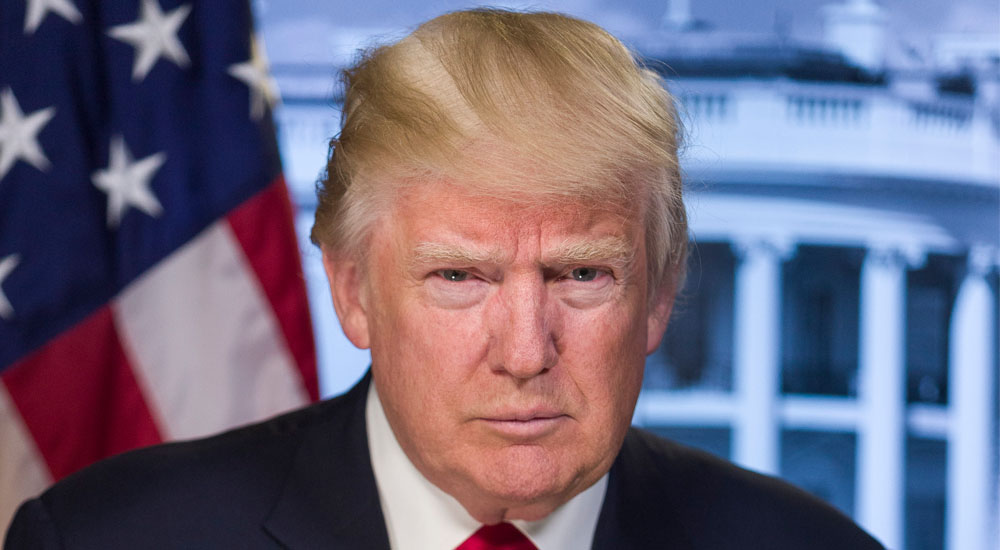The headline, “I work for the president but like-minded colleagues and I have vowed to thwart parts of his agenda and his worst inclinations,” has captivated and shocked many throughout the U.S. as an anonymous piece published in The New York Times (NYT) rails against President Donald Trump, proclaiming and revealing a faction of resistance inside the White House.
While the publishing of an anonymous piece by NYT is not unprecedented, it is quite rare. What is unprecedented, however, is that the author of piece, who has only been identified as a “senior administration official,” is vilifying a sitting president, for whom, as it has been claimed, they work for.
Under the headline, adding even more weight to an already substantial development, the editor added:
“The Times today is taking the rare step of publishing an anonymous Op-Ed essay. We have done so at the request of the author, a senior official in the Trump administration whose identity is known to us and whose job would be jeopardized by its disclosure. We believe publishing this essay anonymously is the only way to deliver an important perspective to our readers.”
On the topic of resistance inside the White House, the author of the op-ed says:
“To be clear, ours is not the popular ‘resistance’ of the left. We want the administration to succeed and think that many of its policies have already made America safer and more prosperous. But we believe our first duty is to this country, and the president continues to act in a manner that is detrimental to the health of our republic.”
The unnamed writer criticizes President’s “amorality,” the presumed root of the cause of nationwide hyper-politicization and a general fracturing of civil discourse. The author says that some within the Trump Administration have “vowed to do what we can to preserve our democratic institutions,” all the while “thwarting Mr. Trump’s more misguided impulses until he is out of office.”
President Trump has “little affinity for ideals long espoused by conservatives: free minds, free markets and free people,” the author writes, while charging that American journalists and the press at-large are not the “enemy of the people,” as the President as long remarked.
When it comes to ideological governance, “President Trump’s impulses are generally anti-trade and anti-democratic,” the author states.
Some decent sentiment is given to the Trump Administration, though, but with harsh condemnation of the President, himself.
The piece reads:
“Don’t get me wrong. There are bright spots that the near-ceaseless negative coverage of the administration fails to capture: effective deregulation, historic tax reform, a more robust military and more. But these successes have come despite — not because of — the president’s leadership style, which is impetuous, adversarial, petty and ineffective.”
As the author writes about certain situations involving the U.S. handling the expulsion of Russian “spies” from the country, as well as international negotiations with Russian President Vladimir Putin and North Korean leader Kim Jong-un, there have been talks, rather, “whispers,” according to the author, within the “cabinet” about “invoking the 25th Amendment.” This, however, as the author explains, “would start a complex process for removing the president.” Explaining why that has not happened, or is yet to happen, the author writes, “no one wanted to precipitate a constitutional crisis.”
The proposed solution for the “unhinged” nature of the President according to the anonymous author: “We will do what we can to steer the administration in the right direction until — one way or another — it’s over.
In the aftermath of the bombshell op-ed, President Trump responded in a volcanic fashion, vehemently denouncing the anonymous piece and the “failing” NYT. Moreover, Trump Administration officials have launched a frantic hunt for the author who claims to be part of the “steady state,” not the popularized “so-called deep state.”
Nevertheless, the portrayal of Trump as a danger to the country that elected him is adding fuel to the fire, some would also add fury, that feeds the President’s paranoia about those close to him and whom he can trust.
Even the phrase, “The sleeper cells have awoken,” has been circulating in correspondence among aides and outside people tied to the Trump Administration.
President Trump, after the op-ed hit the news, tweeted just a single word alleging that the anonymous author may have committed a serious crime: “TREASON?”
White House Press Secretary Sarah Huckabee Sanders joined in the widespread denouncing of the op-ed, channeling the President’s ineffable rage. Through a statement, she echoed some of the common Trumpian phrases shot at the NYT.
“None of them voted for a gutless, anonymous source to the failing New York Times,” Sanders said. She also commanded that the author apologize for what she labeled a “pathetic, reckless, and selfish op-ed,” urging the anonymous author to leave the White House immediately.
The speculation into whom penned the anonymous piece has not been isolated to 1600 Pennsylvania Avenue. Many are beginning to discuss what person, possibly persons, within the Trump Administration the author may be.
Some have pointed to a particular word used within the NYT op-ed.
Nearing the end of the piece, the author pays tribute to the recently deceased Senator John McCain (R-AZ).
“We may no longer have Senator McCain. But we will always have his example — a lodestar for restoring honor to public life and our national dialogue. Mr. Trump may fear such honorable men, but we should revere them.”
Pundits and other media types and have looked to the word “lodestar,” a common word used by Vice President Mike Pence, for their reasoning that the author may be Trump’s right hand man. Another possibility is Pence’s speechwriter, Stephen Ford.
However, with such a bombshell piece, any speechwriter would know to cover their tracks, considering the analysis of tone, style, and use of idioms would be used to uncover the source. Of course, the anonymous author could have even borrowed the peculiar word from the Vice President, or his speechwriter, hiding behind the style of another writer.
There is also the notion of the use of the word “cabinet” in the op-ed. Including Pence, there are 15 heads of executive-level departments as core “Cabinet member” seats. As well, there are eight other Cabinet-level officials which attend Cabinet meetings, but are not official Cabinet members.
Each of these members have undersecretaries, deputy secretaries, and many other titles that could be considered senior administration officials. There are hundreds of these people.
The author was most likely not Pence, or Defense Secretary Jim Mattis, or Transportation Secretary Elaine Chao, or any other Cabinet members – these people are smart, they wouldn’t attempt at stunt like this.
Also, there is the fact that, considering the piece was written anonymously, no one knows who the author is and can even confirm if they are a senior level official within the Trump Adminstration.
Despite the conspiracy theory-like atmosphere surrounding President Trump’s staff, this development is big. Many may have thought the saga of the Trump Presidency could not get any weirder, but that seems to be debunked day after day.






